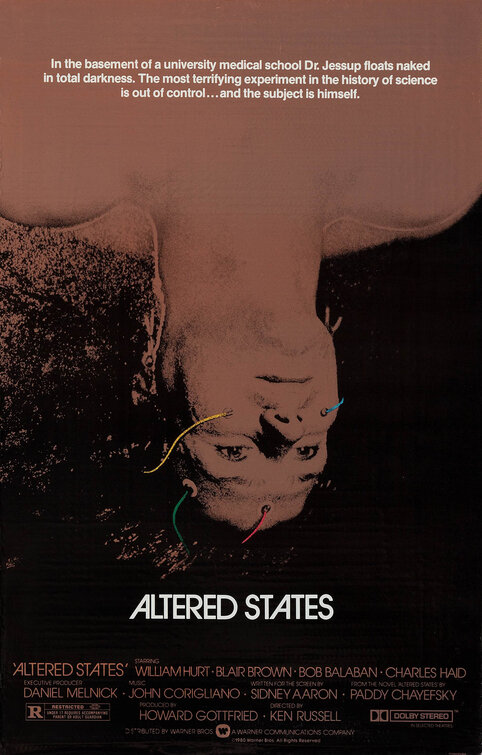Is there anybody out there? Sensory deprivation and creative writing
12/21/2009
Is there anybody out there? Sensory deprivation and creative writing
I'm currently (and rapidly) revising my second novel, which also served at my dissertation and which is set in an afterlife, with a dead narrator and a whole mess of dead characters. The harderst part, I think, is the opening, the first third of the book, because at heart the novel is a roadtrip adventure story and I've always struggled with getting my narrator out on her journey in a way that doesn't feel hackneyed or forced. In my revisions, her impetus for setting out is still a bit hackneyed and forced but it's starting to make more sense.
One of the things I'm trying to do with this novel is adhere (very loosely) to Buddhist concepts of the dying process as laid out in the scriptural text Enlightenment on Hearing in the Intermediate States (mostly known by its shorter title Bardo Thodol and, to Western audiences, as "The Tibetan Book of the Dead"). I've already walked my narrator through the first three cycles of death described in Yangchen Gawai Lodro's The Lamp Thoroughly Illuminating the Presentation of the Three Basic Bodies--Death, Intermediate State, and Rebirth (as translated by Lati Rinpoche and Jeffery Hopkins), but in my dissertation drafts I let my narrator effectively skip the fourth cycle, in which she loses all sensory perception and effectively dissolves into her after-life existence. This is a profoundly difficult thing for me to describe, of course, since I'm still alive and still tied to my sensory perceptions. The closest thing I could imagine to such an experience is a float tank or sensory deprivation chamber, but I don't have access to such a device. So, how to describe what my narrator experiences?
Winter here in the Middle East is impossibly mild, temperatures lullingly comfortable during the day, and I've been leaving the air conditioning off most days. So I decided to take advantage of the weather and I created a kind of sensory-deprivation experience for myself. Using the audio-editing software Audacity, I created a 20-minute track of white noise. Then I took my laptop into our guest room (also known as my meditation room, where my Buddhist altar shares space with a fantastic little futon from IKEA), and I lay back on the futon. I'd shut the windows to block any distracting breezes. I donned an airline eyemask and a pair of light headphones plugged into my laptop, I covered myself in a thin blanket, and I started a recording program to document anything I might say out loud. I put myself in the mindset of my narrator, then I started the white noise, and I simply lay flat for 20 minutes.
The result is not earth-shatteringly profound, but I did have some fairly vivid visions of things my narrator might experience, and as they occured I described them aloud. On the recording, I sound bizarre--sometimes simply bored, sometimes stoned, and toward the end flat-out asleep, which I might have actually been--I catch myself snoring on the recording--but I remain in character throughout, and the text I dictated, though brief and strange, has resulted in some interesting and usable prose for the novel.
I've been intrigued by sensory deprivation since watching the 1980 movie Altered States, but now I'm wildly curious. Word online is that float tanks are common features at spas these days, and though I've yet to come across one, I'm going to start asking around. Who knows what else I might wind up writing?
Subscribe to:
Post Comments (Atom)







2 comments:
http://www.floatworks.com worlds largest centre
http://www.i-sopod.com is a beautiful and modern tank
I'd recommend that you have at least x 3 sessions to fully appreciate what is possible, it's truly amazing and powerful stuff.....
Thanks, anonymous reader! If I'm ever in London I'll check out the Floatworks place.
Post a Comment